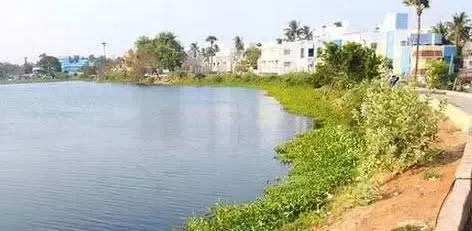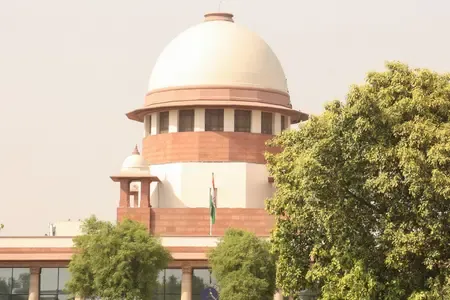Is Chennai's Rs 14,000-crore Water Storage Expansion Plan Enough?

Synopsis
Key Takeaways
- 14,000 crore investment in water storage.
- Focus on restoring 1,150 tanks.
- Construction of 12 new reservoirs.
- Inter-basin linking measures proposed.
- Strengthening of groundwater reserves.
Chennai, Sep 16 (NationPress) As forecasts suggest that the demand for drinking water storage in Chennai is set to surge by over three times by 2050, the Water Resources Department (WRD) has unveiled a substantial plan worth Rs 14,000 crore. This initiative aims to rejuvenate lakes and tanks, construct new reservoirs, and enhance recharge structures.
A detailed feasibility study by the Chennai Corporation predicts the city’s water requirements will escalate to 38.73 tmc from the current 11 tmc. Out of a total of 1,165 proposed projects, the WRD has greenlit 704 priority initiatives to be implemented over the next decade.
The projects cover 12 basins, including Chennai and Palar, with a significant emphasis on revitalizing approximately 1,150 tanks in suburban regions. This includes a network of 350 tanks such as Thenneri, Sriperumbudur, Thirunindravur, Manimangalam, and Pillaipakkam, which function as catchments for Chembarambakkam; plus another 64 tanks along the OMR stretch, like Narayanapuram, Thalambur, Semmenchery, and Nanmangalam.
Restoring these tanks as mini catchments is expected to enhance storage capability and alleviate the dependency of nearby neighborhoods on the city’s reservoirs.
The strategy also includes the construction of 12 new reservoirs along the upstream areas of the Cooum, Adyar, and Palar rivers.
Locations have been earmarked at Thiruverkadu and Poonamallee in the Cooum basin and four villages along the Palar. Each of these reservoirs is projected to contribute between 0.5 tmc and 1 tmc of storage.
Moreover, three significant new reservoirs are planned, including one at Salt Lake along the East Coast Road and another spanning 300 acres of government land near Perumbakkam.
The Perumbakkam reservoir aims to hold up to 2.25 tmc, while the ECR site will add an additional 2 tmc.
Collectively, these reservoirs will assist in retaining water for the OMR area and mitigate flooding into the Pallikaranai marsh.
To bolster groundwater reserves, 402 recharge structures will be constructed along river bunds, and about 200 tanks within industrial areas like Irungattukottai, Oragadam, and Pillaipakkam will be revitalized, thereby reducing reliance on Metrowater by easing 115 MLD of supply.
Inter-basin linking strategies are also suggested, including redirecting water from Adyar to Palar and managing flow from Kosasthalaiyar to Cooum.
Experts emphasize that Chennai receives sufficient rainfall each year, and restoring tanks, lakes, and aquifers while promoting rainwater harvesting is critical for the success of this initiative.









